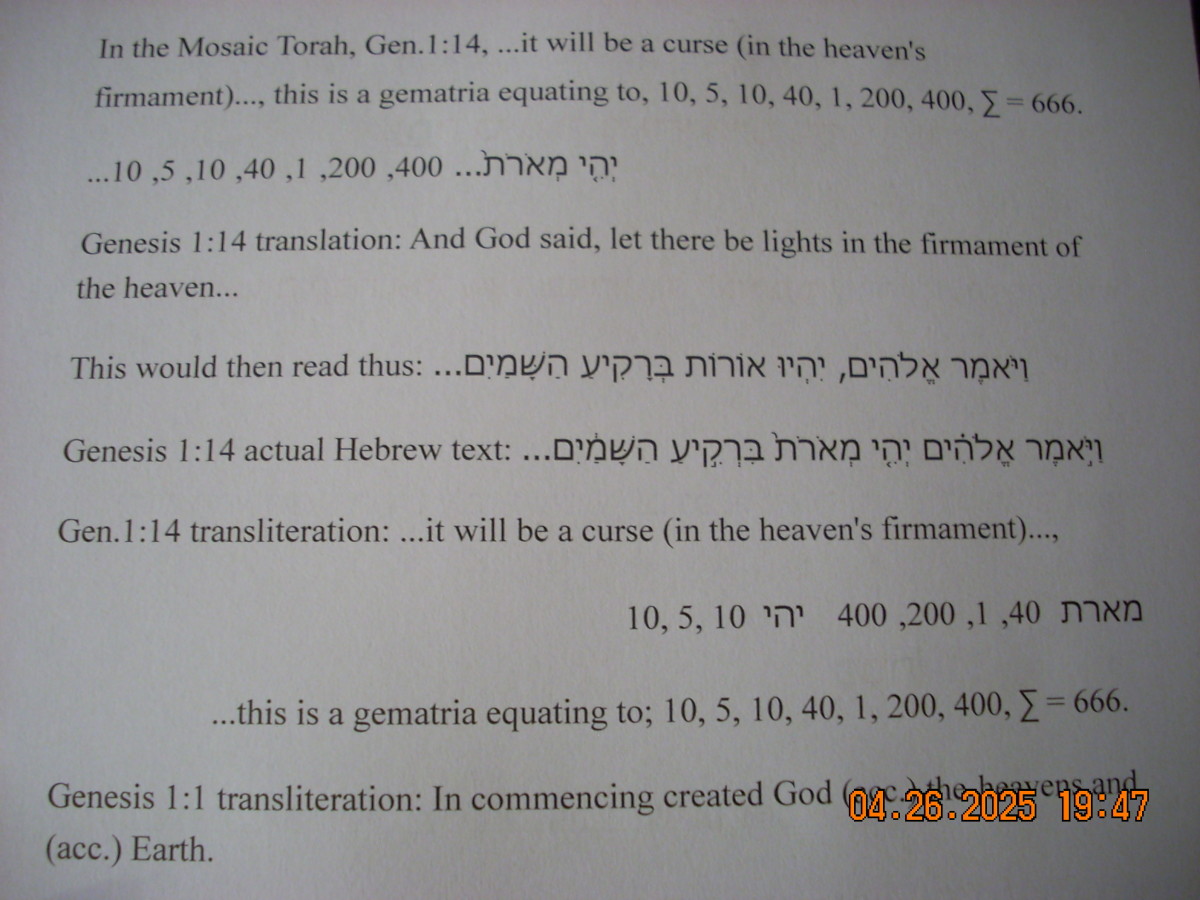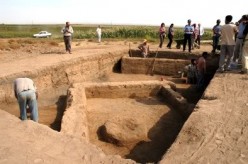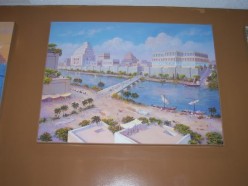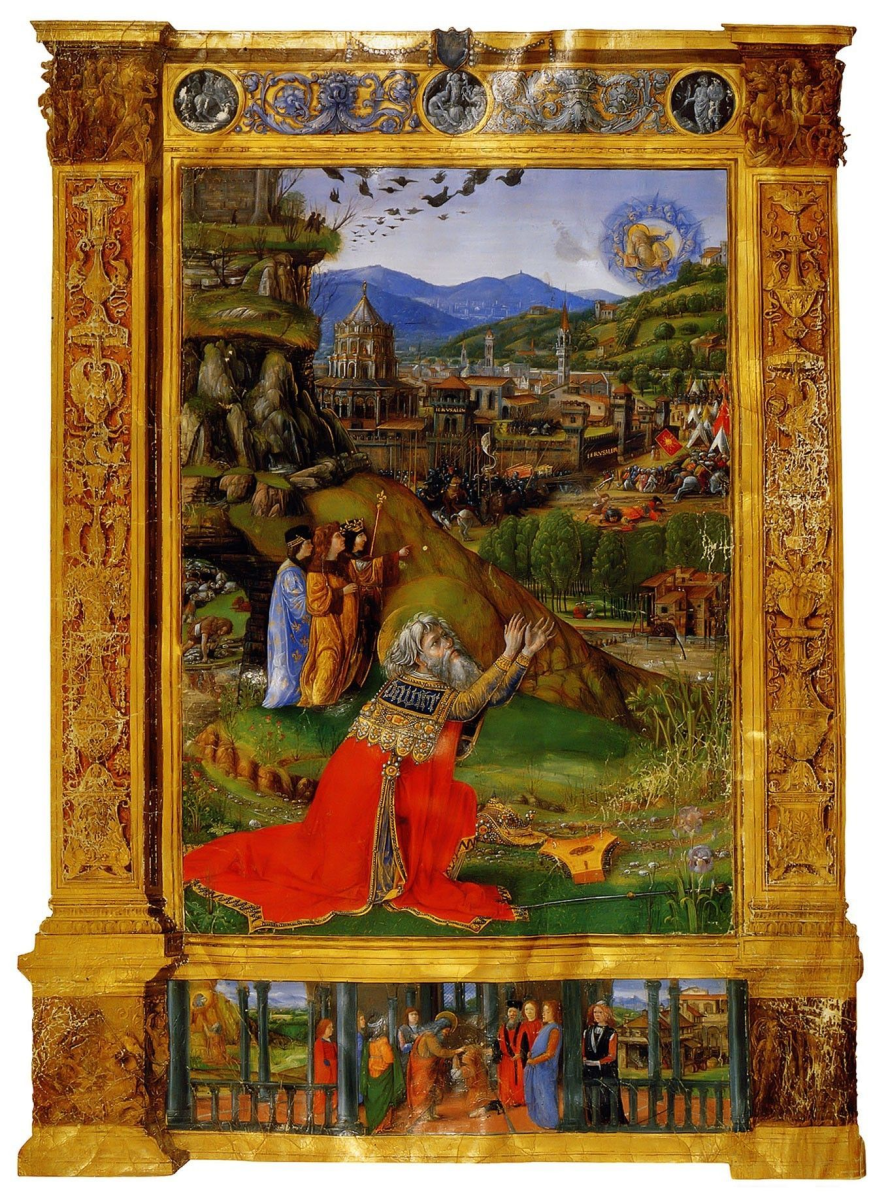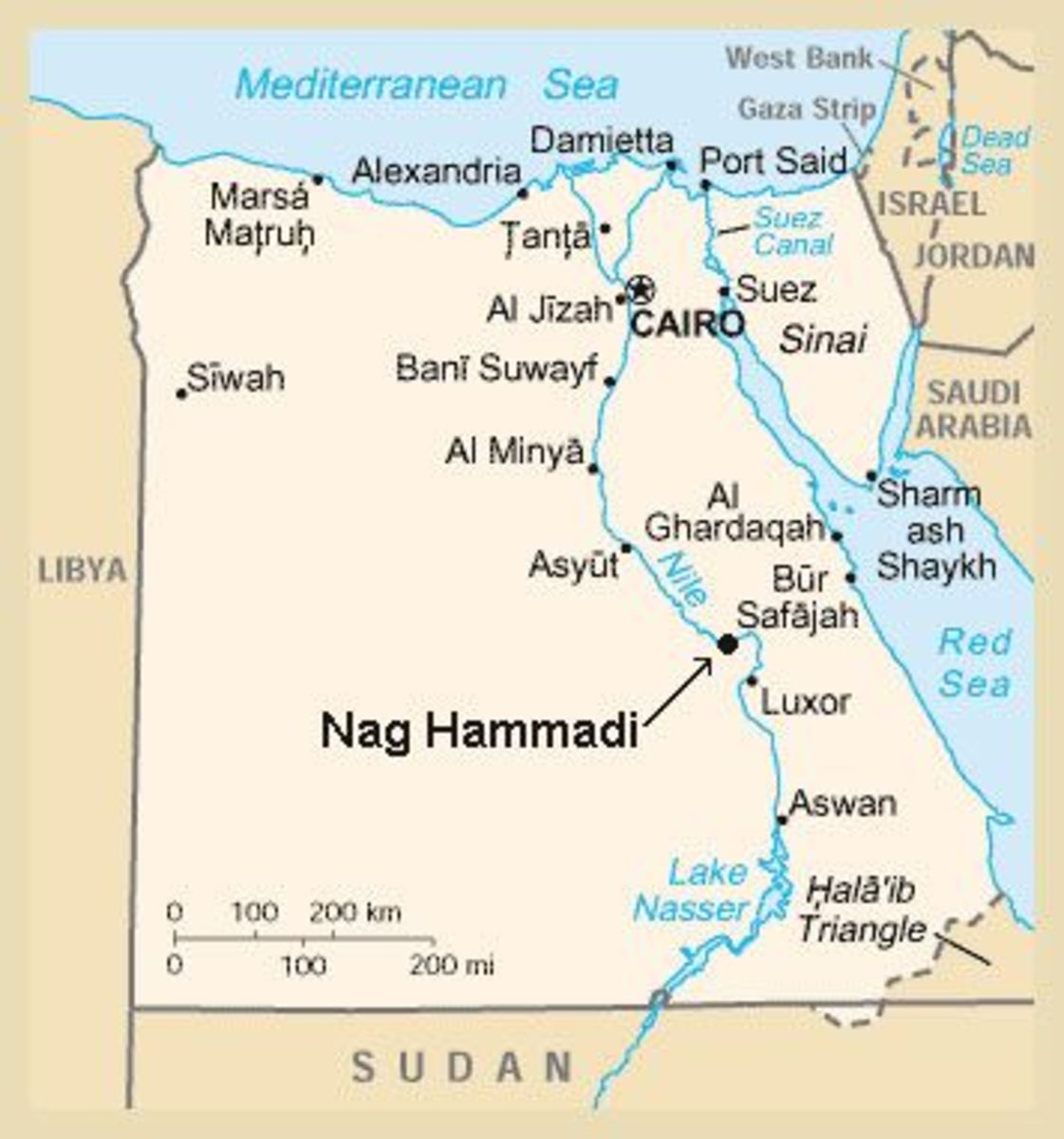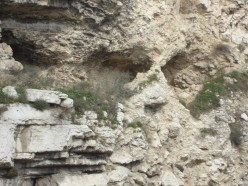 83
83- 0
Misunderstanding Jesus – John 14-16.
The fatal flaw to Christianity is a cryptic mention of an intercessor, actually a Greek word, from Jesus to his disciples as The Last Supper concludes. Translators throughout the centuries have violated basic Greek grammar in rendering their translations and distorted the meaning of his testament.
- 0
The Messiah Codes of Genesis 1 and Isaiah 53, Resolving The Validity of 28
Examining 666, Moses, Metatron and the mathematical proofs of God in light of Genesis 1 and the Isaiah Hebrew Codes which both express the number 28 in conjunction with matters of The Davidic Messiah
- 0
The Day Jesus Christ Was Executed - A Hidden Code Revealed - From The Calculations of Michael Rood
Did Michael Rood in The Chronological Gospels really calculate the day Jesus died? Is there a unique code revealed by his work, and does it relate to codes in Isaiah 53?
- 0
A valid code in Isaiah 53 mentioning Jesus Christ and his cousin John?
Is there a valid Isaiah 53 code mentioning Jesus Christ? Examining Mark's road to Emmaus statement, where is the fate of Jesus' cousin, John, recorded in the Hebrew Bible?
- 0
Ezra & Nehemiah Under Scrutiny - Scholarly Fraud According To The Quran - III
Interpreting Ezra through the Qur'an is a task replete with problems in accordance with the context of the single verse which explicitly identifies him. This article concludes the three part series and discusses Ezra through the additional reference to him in Surah of The Repentance.
- 0
Ezra & Nehemiah Under Scrutiny - A Biblical Fraud Unmasked - II
Ezra from a Karaite perspective reveals a time of trouble when a power struggle ensued between the Babylonian exiles and Israelite Jews. Ezra & Nehemiah are read horizontally and in reference to Torah with independent historic records for clarification. This article is part of a series post-Daniel.
- 0
Ezra & Nehemiah Under Scrutiny - Timeline Of Daniel - I
Ezra from a Karaite perspective reveals a time of trouble when a power struggle ensued between the Babylonian exiles and Israelite Jews. Ezra & Nehemiah are read horizontally and in reference to Torah with independent historic records for clarification. This article is part of a critical series.
- 0
Abraham And The Hajj
These portions of the Quran have been supplemented with significant readings from 3 Sunni hadiths, and some complimentary verses of Genesis 21, to complete the account of Abraham establishing the covenants of the biblical prophets. Masoretic, Samaritan and Dead Sea Scroll Torah sources are used.
- 6
He Who Established The Covenants
This section of Torah has been translated and overlaid with verses from the Quran. The Quran does not actually contradict the story of Abraham, as some of the modern Islamic scholars admit. The Masoretic text is supplemented by 3 alternative readings from the Samaritan and Dead Sea Scroll sources.
- 0
Hargar In The Wilderness And The Birth Of Isaac
This adapted translation of Sahih Al-Bukhari hadiths, and combined translation of Genesis from Hebrew, complement each other, telling the story of Hargar, and an infant Ishmael, finding a new life in a dry wilderness as Abraham returns to Sarah and celebrates the miracle of Isaac's birth.
- 0
Sarah And Hagar - The Division Of The House Of Abraham
Amongst Abraham's tests, the loss of his wife, Hagar, is one that is given no parallel in the Quran, in contrast to the differing biblical stories. Only the hadith literature addresses this story and adequately enhances our knowledge of what happened long ago. This account forms a single narrative.
- 0
Abraham Pleads For The Sinners & Lot Escapes The Judgment
The stories of Abraham and Lot within the Quran form a significant component of this religious text. This translated reading of the Quran in a horizontal format is combined with some of the Genesis text to build a more complete tale of these amazing events following on from the promise of Isaac.
- 2
Isaac Promised To Abraham & Lot As The Prophet To The Cities Of The Plain
The stories of Abraham and Lot within the Quran form a significant component of this religious text. This translation and reading of the Quran in a horizontal format is combined with some of the Genesis text to build a more complete tale of these amazing events which were occurring simultaneously.
- 0
Abraham's Seed & God's Promise - Genesis 15-17 Read in Sequence - Abraham's Name & Covenant
Reading Abraham's story from Genesis is a great challenge since it seems to overlap or contradict in many places, in contrast to others where the verses read according to a logical sequence. This translation, part 2/2, makes for a clear reading both chronologically and in terms of vocabulary.
- 0
Abraham's Seed & God's Promise - Genesis 15-17 Read In Sequence - Sarah And Her Rivalry With Hagar
Reading Abraham's story from Genesis is a great challenge since it seems to overlap or contradict in many places, in contrast to others where the verses read according to a logical sequence. This translation, part 1/2, makes for a clear reading both chronologically and in terms of vocabulary.
- 0
Abraham & Pharaoh versus Abraham & Abimelech
Abraham never went to Egypt, for he was ordered not to (Gen.26:1-3). If we read Gen.12 and Gen.20 there are two parallel stories that mesh. The only difference is the usage of the Egyptian ruler versus the Palestinian ruler. In truth they are one in the same. A sequential reading commences.
- 0
Abraham Leaves Haran
This is a sequential reading of the life of Abraham, primarily from Genesis to Joshua, with supplements from the Islamic literature. One must assume that the later command to Abraham not to enter Egypt means he never went there in the first place, therefore great diligence is required in reading.
- 0
Abraham On Trial- A Sequential Reading of the Quran - A Parallel to the Genesis Rabbah - Exile (B).
The Quran contains a number of short accounts of Abraham, some only one verse long. This article translates the readings concerning his youth chronologically and comprehensively, resulting in a parallel but differing account to that preserved by a Jewish source, the Genesis Rabbah.
- 0
Abraham as a Youth - A Sequential Reading of the Quran - A Parallel to the Genesis Rabbah - An Awakening (A).
The Quran contains a number of short accounts of Abraham (born Ab-raam), some only one verse long. This article translates the readings concerning his youth chronologically and comprehensively. The result is a parallel but differing account to that preserved by a Jewish source, the Genesis Rabbah.
- 0
Psalm 110 - Best Translation.
Many defective translations of this Davidic psalm have been constructed by persons of different faiths and varying denominations. Christian scholars tend to view this as a Messianic Psalm. This is a translation accompanied by a most comprehensive list of cross-references.
- 7
"Render unto Caesar..." Jesus According To The Gospel Of Thomas
The Coptic Gospel of Thomas discovered in Nag Hammadi, Egypt
- 2
QURAN - TRUTH (Part2) Versus LIES OF "ISLAM".
Just as there are radical differences between The Way Of Moses [Torah] & Judaism, The Way Of Christ Jesus & Christianity, so there are critical differences between the Qur'an & Islamic interpretation.
- 1
THE MATRIX - REVEALED - SATAN IN POPULAR ENTERTAINMENT PART2
"The Matrix" a movie like no other, so rich in High Satanic Worship it might have slipped past you. This analysis of the movie with some reference to the sequels will examine the esoteric thriller.
